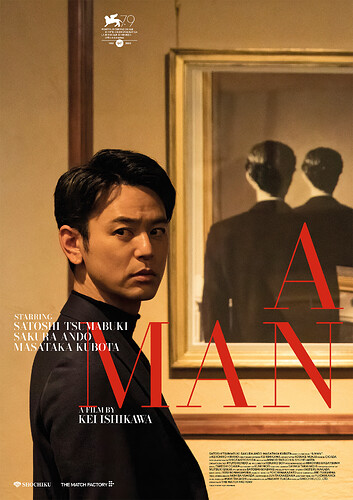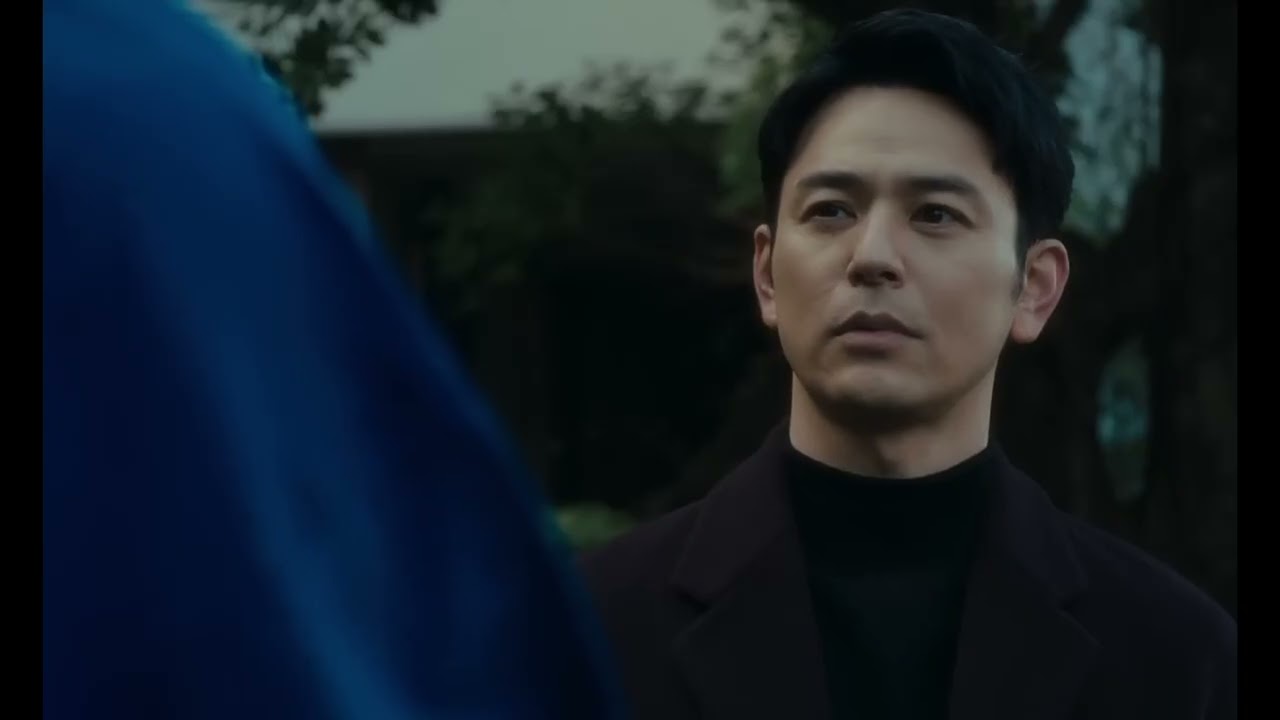The movie poster above features a 1937 painting by Belgian surrealist René Magritte which is named “Not to Be Reproduced”. Not seen in the poster is Edgar Allan Poe’s The Narrative of Arthur Gordon Pym of Nantucket on the mantelpiece on the bottom right reflected correctly in the mirror, but the man’s reflection is of his back. The painting is the perfect representation of the rich subtext in Kei Ishikawa’s A Man, a slow-burn mystery but a gripping meditation on man’s perception of reality, obsession and identity.
What makes you, you? Are you the sum total of your past and present? Beyond physical aspects, what truly defines you? Is it your accomplishments, your failures or the people you have touched? Ishikawa has crafted a film that examines many deep issues fashioned after a mystery. Feted with 8 Japanese Academy Awards earlier this year, including Best Film, Director, Screenplay, Actor and Supporting Actor and Actress, I am not sure the film is for the mass market and I have my reasons for it. This isn’t a slight against the movie. In fact, it’s a enormously rewarding film, elevated by sharp observations, sharper insights and the sharpest critique on Japan’s intolerance with immigrants.
A Man begins with a love story between a woman named Rie (Sakura Ando) who feels she has no chance with love again and a man named Daisuke (Masataka Kubota) who thinks he does not deserve love because of the crippling burden of inherited shame. But 3 years into a lovely marriage, tragedy strikes Daisuke and Rie realises he isn’t who he said he is. Into the fray enters an attorney Kido (Satoshi Tsumabuki) who investigates Daisuke’s true identity and he will also see himself being tested by everything that happens around him.
I am a huge fan of the book by Keiichiro Hirano and that year when I read it no other books could come close to it. It was the off chance that I discovered there is a movie adaptation and as luck would have it, the movie is being screened under the banner of the Japanese Film Festival. I remember thinking the complex and dense story doesn’t lend itself to an easy 2-hour movie but Ishikawa has done a masterful job of translating the novel’s multi-layered story and themes beautifully. Granted it is simply impossible to translate the characters’ internal philosophical monologue onto the big screen which would spell instant death for the movie, it is still a deeply satisfying movie and an ending that invites many thought-provoking questions.
A Man requires a patient audience who is willing to meet it halfway. Ishikawa does more than enough to lull you into a mystery and the cast of actors gave impeccable performances. The first half hour does an amazing job of establishing Rie and Daisuke, then suddenly the focus shifts away from them to Kido for the majority of the story, which makes for an unsettling experience for the unaware audience. In the novel, the segue moves on tinkle toes but as a movie I am guessing it will be off-putting for members of audience who haven’t read the book. The investigative procedural lacks a sense of urgency but rewards the introspective audience with its interrogation on inherited sin, burdened past and true identity.
I found myself dreading the last half hour but was helpless to stop it from happening before my eyes. The ending was clear in my mind because it resonated so strongly with me when I read the book, but seeing it unfold on the big screen is still a piece of brilliant magic. Even when the house lights came on, the story stayed in my head, all coiled up and hissing, like a snake in a crevice. In the end, the revelation of Daisuke’s identity isn’t the crux of the story; it is the realisation that the human heart is complex and labyrinthine, and that sometimes, just sometimes, true love can be build on a lie.
4 / 5

